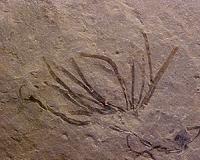 |
London (UPI) Dec 15, 2010 Loss of sea ice in the arctic is leading to hybridization of animals, threatening the extinction of many species as they are presently known, researchers say. With ongoing reductions in the amount of summer sea ice in the arctic predicted through the end of the century, polar bears will spend even more time in grizzly bear territories, and species of seals and whales currently living in different oceans separated by ice will soon share the same northern waters, an article in the journal Nature said. Isolated populations will come into contact and mate, and some, like the North Pacific right whale, could be driven to extinction, the authors say. Many arctic hybrids have already been seen. In 2006, arctic hunters shot a polar bear-grizzly bear mix, a white bear with brown patches. In the late 1980s, a skull thought to be that of a narwhal-beluga whale mix was found in west Greenland, and in 2009, an apparent bowhead-right-whale hybrid was photographed in the Bering Sea. Porpoises and seals are known to be hybridizing, researchers say, and this year another polar-grizzly hybrid was killed. The authors of the Nature piece call for a monitoring program to see how much cross-breeding is going on, so the International Union for the Conservation of Nature can develop better protection plans. "The rapid disappearance of sea ice leaves little time to lose," the authors write.
Share This Article With Planet Earth
Related Links Darwin Today At TerraDaily.com
 The Day The Algae Died
The Day The Algae DiedMoffett Field CA (SPX) Dec 14, 2010 The mass extinction at the end of the Permian period almost cleared the planet of life 250 million years ago. Only one in ten species in the ocean survived. Two-thirds of reptiles and amphibians disappeared. Even plants and insects suffered major losses. But in this near-perfect strike, the first "pin" to topple may have been algae, according to researchers studying molecular fossils from this t ... read more |
|
| The content herein, unless otherwise known to be public domain, are Copyright 1995-2010 - SpaceDaily. AFP and UPI Wire Stories are copyright Agence France-Presse and United Press International. ESA Portal Reports are copyright European Space Agency. All NASA sourced material is public domain. Additional copyrights may apply in whole or part to other bona fide parties. Advertising does not imply endorsement,agreement or approval of any opinions, statements or information provided by SpaceDaily on any Web page published or hosted by SpaceDaily. Privacy Statement |